
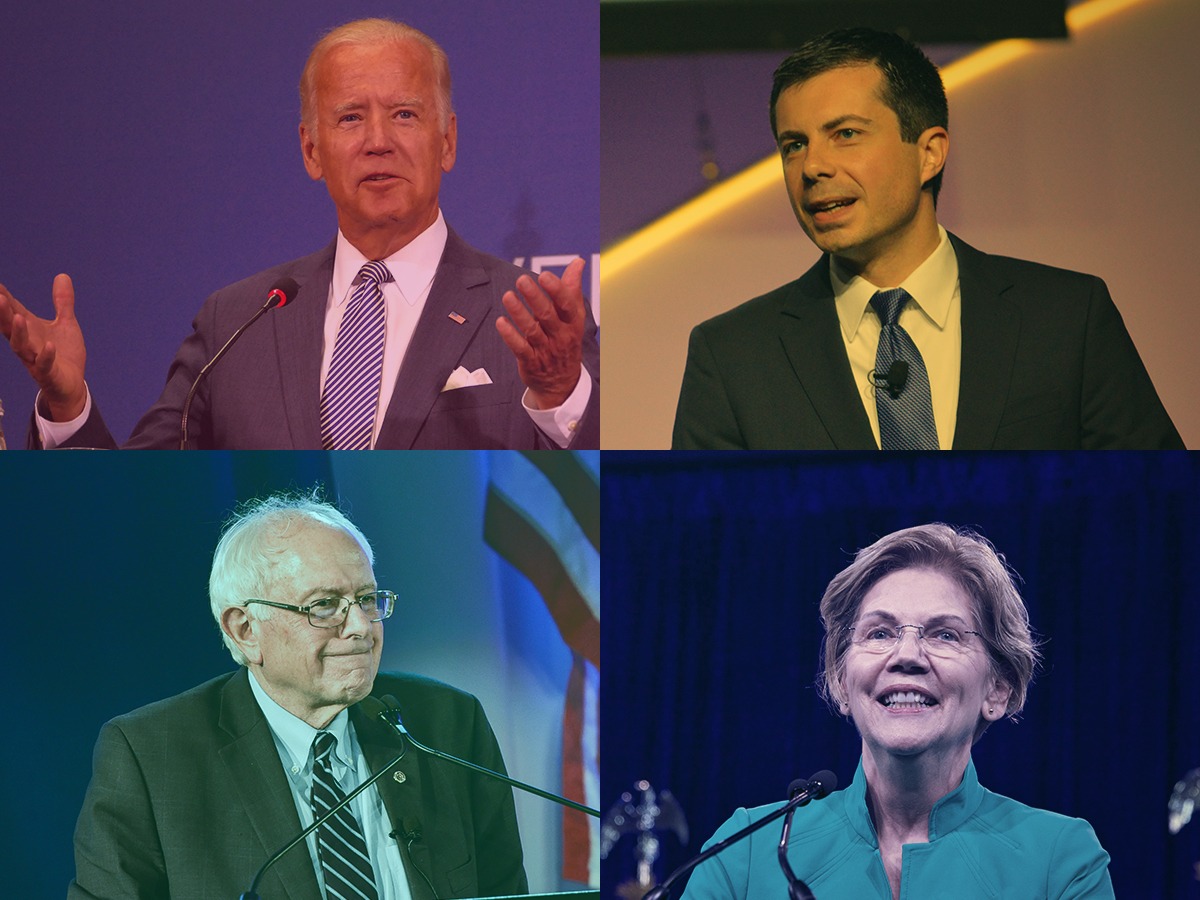
Traditionally, the Iowa caucuses have been a critical barometer for the presidential primary season. But this year’s caucus was… a little different. A snafu with the Iowa Democratic Party’s mobile reporting system caused significant delays in the final results. Instead of a winner coming out of The Hawkeye State with a big bounce, the entire field was left moving on to New Hampshire with a sense of chaos, confusion, and without a clear front-runner.
That’s not to say that there aren’t any critical insights that can be gained out of the Iowa electorate. In an ongoing attempt to take a fresh approach to political polling, LRW fielded a survey in the days before the Iowa caucus to see how identity shaped the views of Democratic voters. The survey asked 403 Iowa Democratic caucus goers their first choice candidate and went on to ask those respondents a number of questions tied to identity, including a relatively simple open ended question: “In your own words, why do you plan to support that candidate?” LRW recorded the responses, calculated the average word count per candidate, and built word clouds to determine what brand characteristics are driving support for those candidates.
Below is an analysis of what supporters had to say about the caucus’ top four candidates. The results offer a compelling and, at times, surprising, look at the candidates’ political brand attributes.
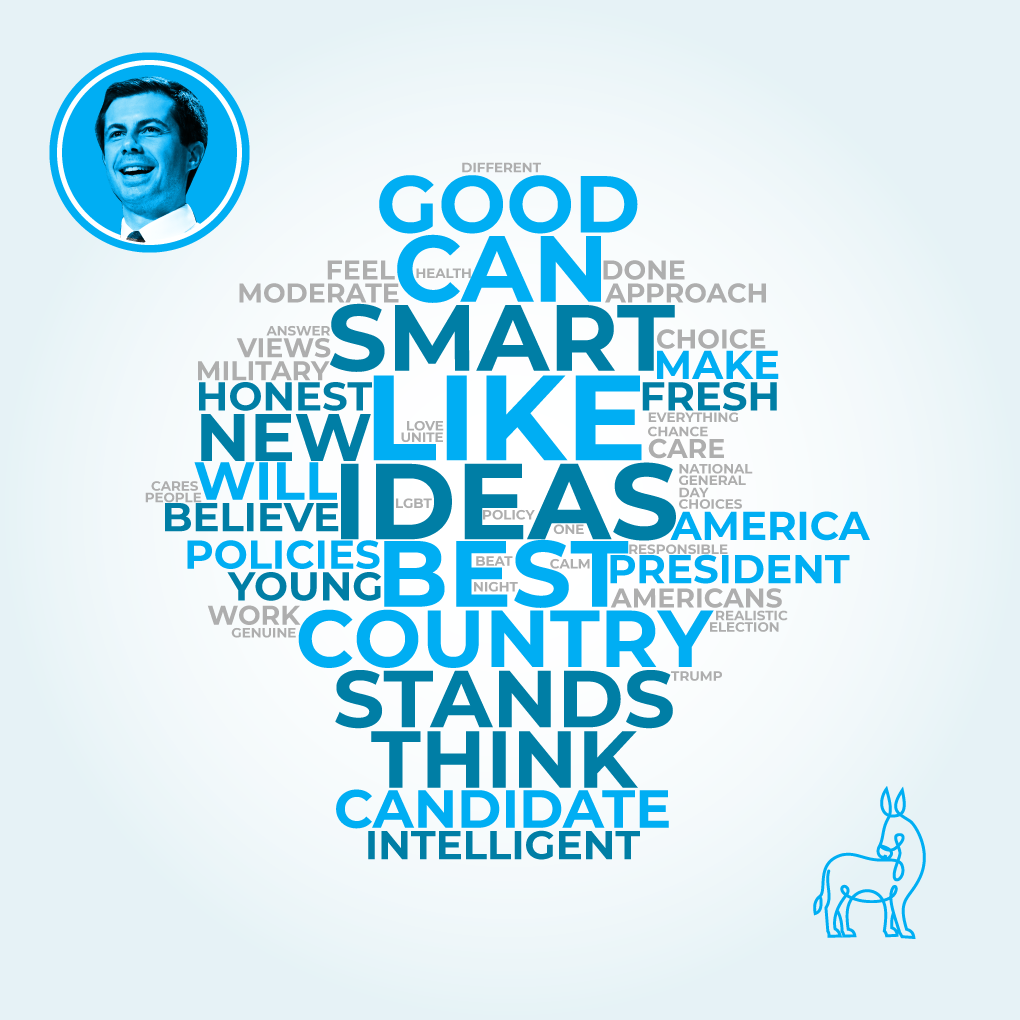
Supporters see a lot of favorable qualities in Pete Buttigieg. As the youngest Democratic candidate at 38 years old, his age (“fresh,” young,” “new,” etc.) is seen as a salient attribute. The Harvard-educated candidate’s intelligence also stands out as a top attractive quality, as demonstrated by words like “smart,” “ideas,” and “think.” Other words used to describe Mayor Pete such as “stands,” and “honest” suggest the candidate’s character is a top selling point.
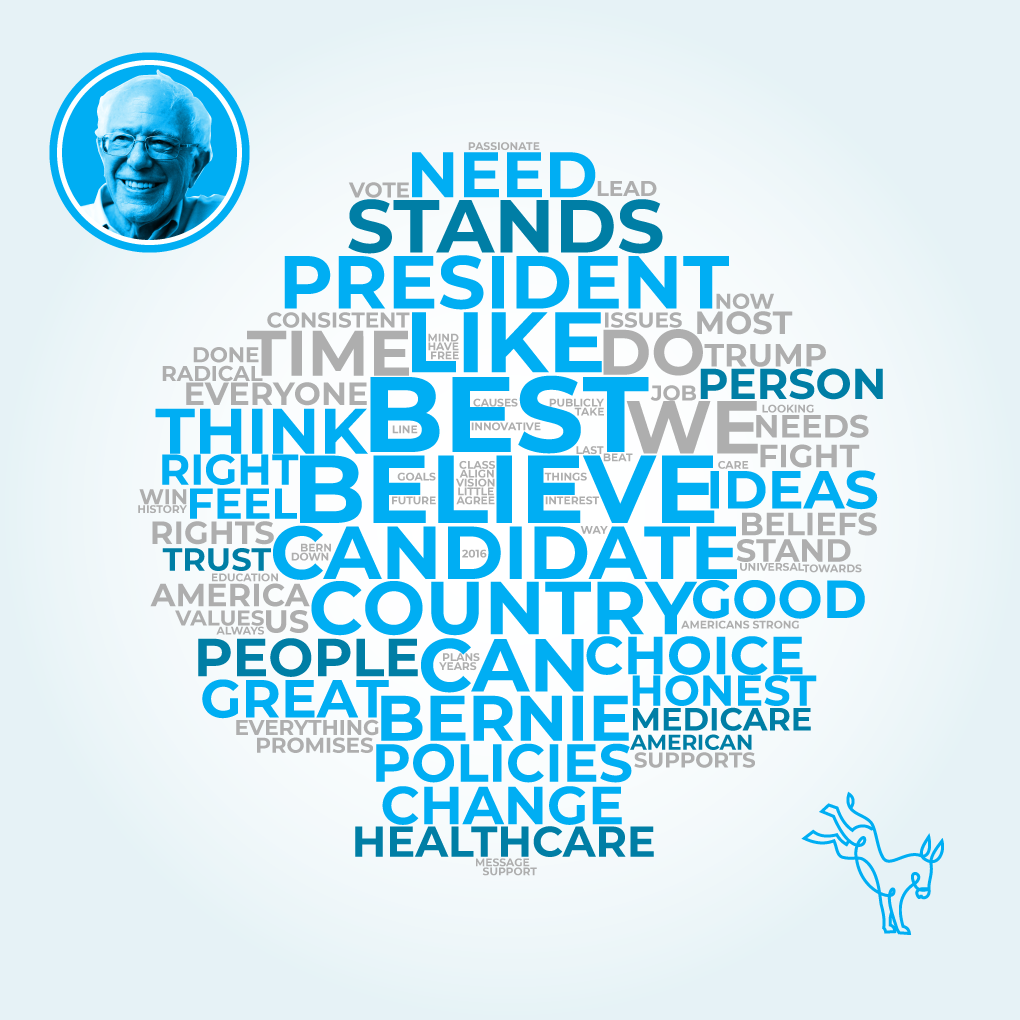
Perhaps more than any other candidate, Bernie Sanders is most closely associated with words about character (“stands,” “honest,” etc.). He also appears to connect the most on a human level, where we see words like “people,” “person,” and “we.” And unlike his counterparts, Sanders is directly tied to specific issues (“healthcare” and “Medicare”). Prominent words like “best” and “believe” suggest passionate support for the senator from Vermont. But as interesting as the words associated with Sanders are, it might be more interesting to see the words that are not associated with him. Even though he proudly describes himself as a “democratic socialist,” his supporters use neither of those words prominently to describe his appeal.
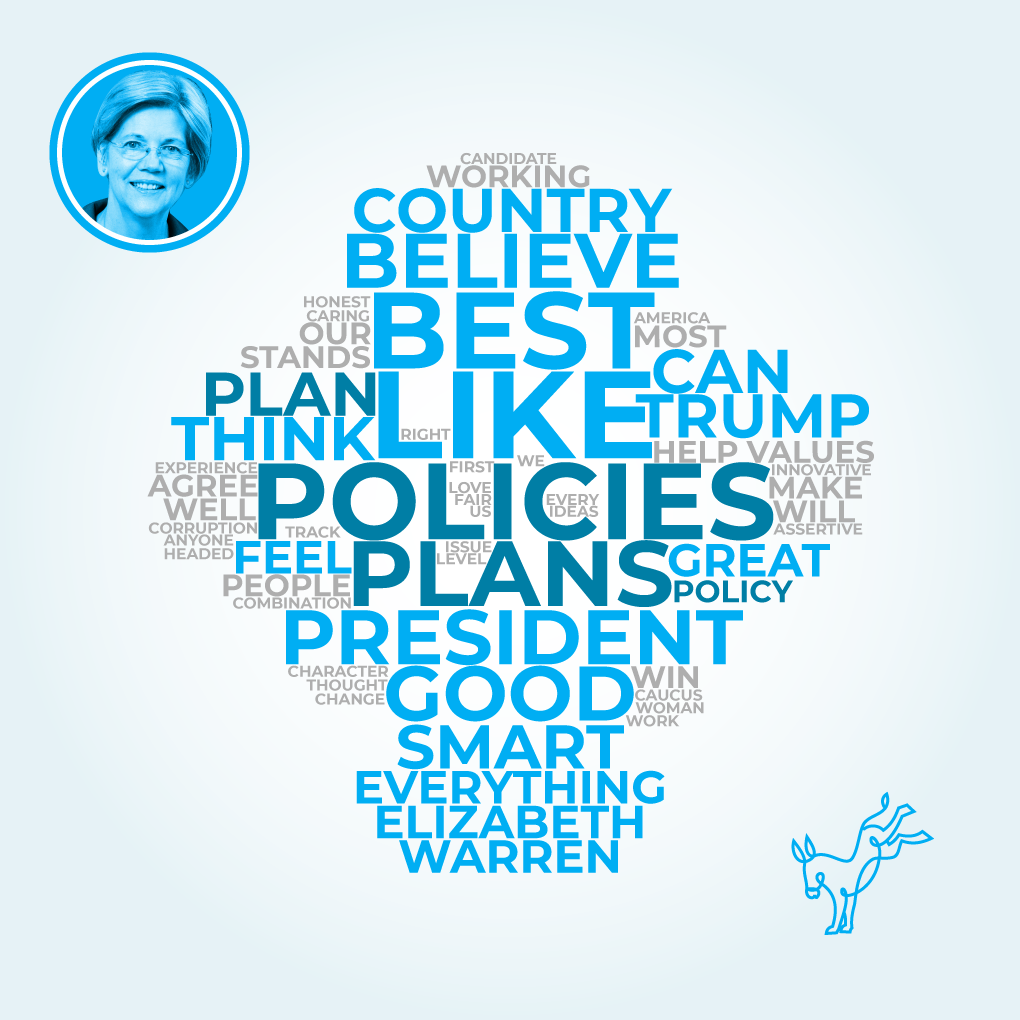
Warren, the U.S. senator from Massachusetts, has tried to brand herself as the race’s policy wonk, and it appears that branding has truly stuck with her supporters. Words like “policies,” “policy,” and “plans” are used to describe her more than any other candidate. But unlike with Bernie Sanders, it doesn’t appear that Warren’s supporters consistently link her to any one specific policy. And with all of the talk about Warren potentially becoming America’s first female president, there are very few references to that dynamic, suggesting that her supporters are not necessarily driven by gender identity. Nevertheless, supporters have a lot to say about her; they averaged 66 words to explain why she was their top choice, eclipsing all candidates other than Andrew Yang (72 words, on average).
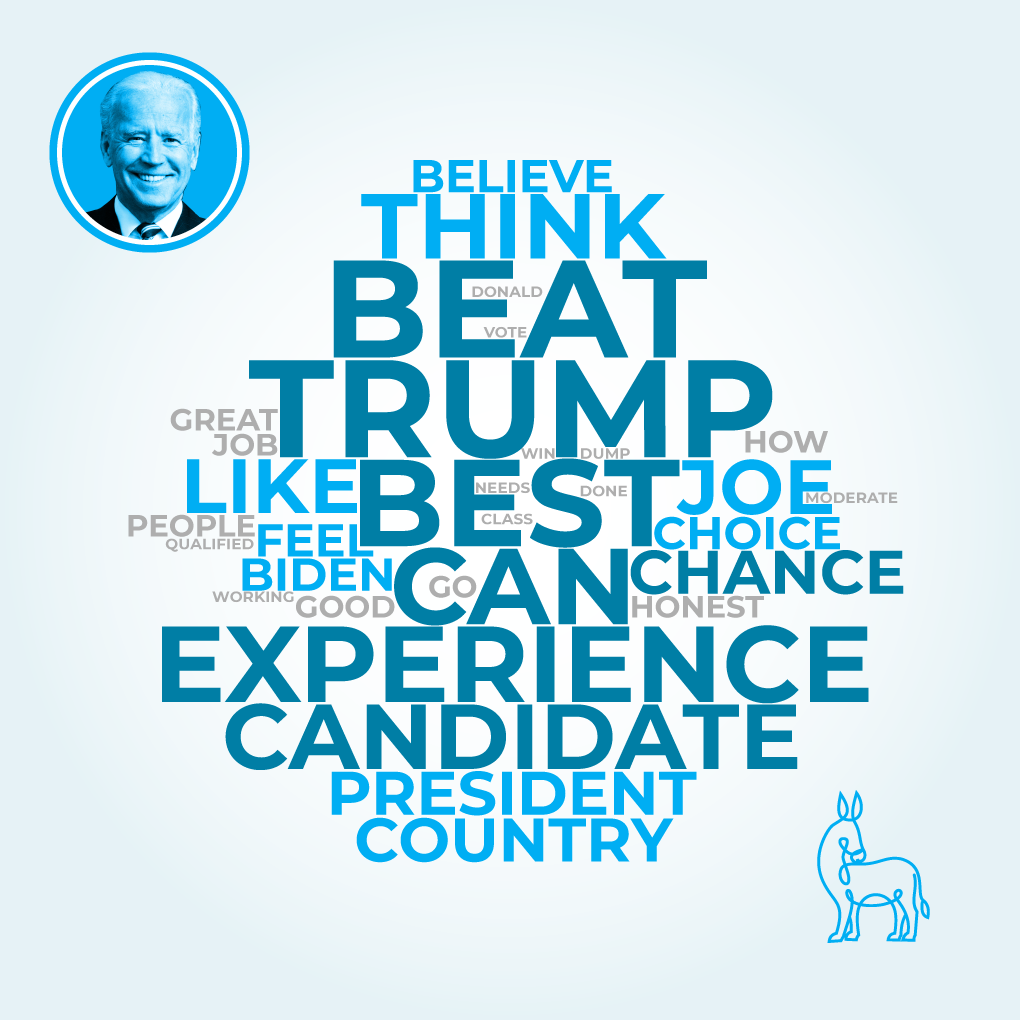
Unlike the three opponents listed above, the words associated with the former vice president are less about the candidate himself and more about what he represents. More specifically, it’s the sense among supporters that Biden is the candidate best positioned to beat Donald Trump in a general election. These statements make it clear that Biden’s supporters are less interested in his policies as they are with his viability in the general election. It’s also worth noting the average word count for Biden supporters (48 words) is lower than the average word counts for any of the other top candidates’ supporters, suggesting more moderate levels of passion.
It may be easy to dismiss this analysis as an isolated perspective from a single state. But it’s important to remember that these candidates spent millions of dollars and several months in Iowa to define their brands. As a result, Hawkeye voters may be more in tune with the candidates than any other electorate in the country. The words that these supporters choose can tell us a lot about what’s most important to them, whether it’s social or fiscal issues, electability, or any other factor that drives people to vote the way they do.
As this election year becomes even more heated, it will be fascinating to see how the remaining Democratic candidates continue to manicure and promote their brands – and the words that shape those brands.
You must be logged in to post a comment.